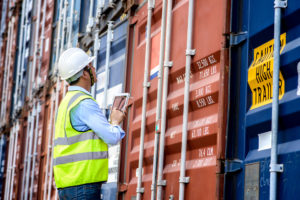As the UK and EU come together with a new renewables and climate change strategy, exporters and importers will face new reporting requirements and tax levies, say leading tax and advisory firm Blick Rothenberg.
Simon Sutcliffe, a customs expert and Partner at the firm, said: “The two customs unions of the UK and EU are aligning them themselves closer and closer in terms of a climate plan. The detailed reporting requirements and taxing of companies who move these types of goods, although a worthy cause, will add to the administrative burden and cost for business and no doubt increase prices for consumers as these costs are passed on.”
He added: “New reporting requirements and taxes due to be set in motion in 2024 will see the UK and EU move closer to each other in their climate change and environmental levies targeting import and export companies which will mean them paying higher levies and possibly fines.”
Simon said: “The proposed UK Carbon Border Adjustment Mechanism (CBAM) is measure that will be in addition to the UK’s existing Plastic Packaging Tax (PPT) which already that taxes UK manufactured plastic packaging for goods and goods imported in plastic packing for sale in the UK marketplace.”
He added: “HMRC will begin the process of consultation in 2024 before implementation in 2027. CBAM will cover recording the importation of goods that have a carbon impact and will cover such items as iron. steel, aluminium, glass, ceramics, fertilizer, and electricity, with a view to taxing those carbon polluting industries by 2027.”
Simon said: “The EU already has EU CBAM and has plans for a similar UK style PPT tax plan called the ‘EU Plastic Levy’ but it’s scope and implementation is not currently aligned across all the EU states. The EU may formalise their Plastic Levy commitments in the coming years to align the UK and the EU further on environmental issues surrounding trade and supply chains of certain goods.”
He added: “UK Companies already struggle with administering the UK’s Plastic Packaging Tax (PPT) having sufficient access to the production processes further down their supply chain to be able to comply with the tax. The introduction of another levy requiring even more information will put further strain upon them.
“Now as the UK draws nearer to the EU on its renewables and climate change combatting methods by the adoption of a new reporting requirement and tax levies aimed at importers and exporters, businesses will have to understand and have access to their supply chains to meet the reporting requirements.”
Read more:
UK and EU climate change strategy will see new reporting procedures and rising consumer prices


























